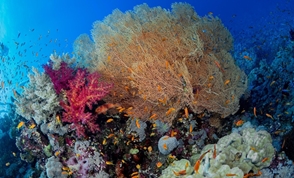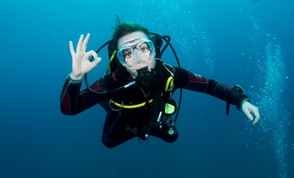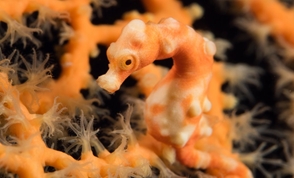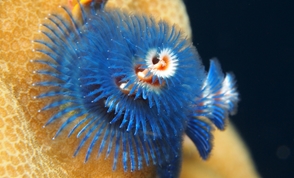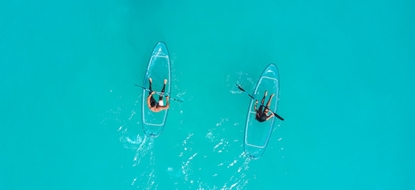Six Top Tips for Sustainable Diving
Small changes can make a big difference when it comes to responsible diving holidays.
Divers are by their very nature passionate about the marine world, but did you know that next time you book a diving holiday, there are simple but effective ways to ensure that your trip is as sustainable as possible? At Reefscape we believe strongly that divers can have a positive impact on marine conservation – read on for our top tips on how to play your part.

Take only pictures, leave only bubbles
No matter how tempting, never pick up pretty shells, rocks or other souvenirs from your dive. It’s crucial to leave nothing behind, too – sadly, it’s rare to go on a dive and not encounter some sort of rubbish. It goes without saying that you should never leave litter, but divers can go one step further and collect a few pieces of rubbish on every dive. Consider buying a hands-free trash collection bag – TRSHBG (www.trshbg.com) is a nifty product created by a team of eco-minded divers and surfers. Handmade from re-used materials, it can be worn around your hip or calf to stash any rubbish you come across while diving. For experienced divers, it’s also a good idea to carry a dive knife, as much of the marine debris you’re likely to encounter is discarded fishing gear which often ends up wrapped around objects and poses an entanglement risk to marine life.

Fine-tune your finning technique
It’s really important to avoid contact with coral when diving, or indeed snorkelling. As well as being potentially very painful to you and risking a skin infection, it can cause immense damage to the coral. While many people think they are plants, corals are in fact animals and are evolutionary relatives of jellyfish. Their vivid colours come from a symbiotic micro-organism called zooxanthellae, which lives inside the coral polyps and uses photosynthesis to supply the coral with the majority of its food. Coral polyps protect themselves (and their symbiotic zooxanthellae) from infection with a mucus layer. When this is touched or knocked by fins, two things may happen – the mucus layer may be damaged and the coral is then exposed to pathogens, and a stress response is triggered which causes the coral to eject their zooxanthellae. This event is called ‘bleaching’ because without the pigmented zooxanthellae, the coral loses its bright colour and becomes white. If the damage is severe, the polyps will die. A study by the Reef-World Foundation found that almost half of diver contacts with the reef were caused by fins. So it’s well worth spending some time improving your finning techniques to avoid unnecessary bumps – in particular, the frog kick and back kick. Ask an instructor to help you if you’re struggling to master these.

Control your buoyancy
It’s not just newly qualified divers who struggle with buoyancy – even experienced divers can be guilty of drifting too close to the reef, especially when distracted. This is often the case when taking pictures or filming underwater, when it’s easy to become absorbed in the subject. Always make sure your buoyancy is fine-tuned before getting your camera out, and check that your equipment is secured so that you’re not trailing anything behind you which could catch on coral.

Choose reef-safe sun cream
Pick your sun lotion carefully, as many contain ingredients that are harmful to marine life. In particular, steer clear of a chemical called Oxybenzone (Benzophenone-3) and opt instead for a mineral sunscreen with ‘non-nano’ particles which can’t be easily absorbed by marine life. Want to know more? Read our previous blog post, with our top picks of reef-safe sunscreens.

Choose responsible dive operators
This is a biggie. Before you book, do your homework. Does the resort offer reef clean-up dives? Do they support and educate the local community? Do the guides feed the fish, thereby changing their natural behaviour and teaching them to depend on humans? Do they drop anchor and risk reef damage or do they use moorings to protect marine habitats? Do they demonstrate environmentally responsible practices such as banning single-use plastics, using biodegradable toiletries, using solar power or rainwater collection? Do they support local or global marine environmental organizations? If that feels like a daunting list, let us do the research for you.
At Reefscape, we believe that working with lodges, boats and resorts who make a positive impact on their environment and community is crucial. We aim to work only with those who uphold the values of sustainable and ethical travel, going the extra mile to make a positive impact locally.

Watch out for greenwashing
Greenwashing is behaviour or activities which make people believe that a company is doing more to protect the environment than it really is. Sadly, it’s increasingly common – but there are ways to get a clearer picture of a dive resort’s eco-credentials. Ask the resort whether they have a written policy regarding their environmental practices – if they do, it’s a good sign that they are taking their responsibilities seriously. Check how many local people are employed, as this will give you an idea of how much the resort is giving back to the local community.



